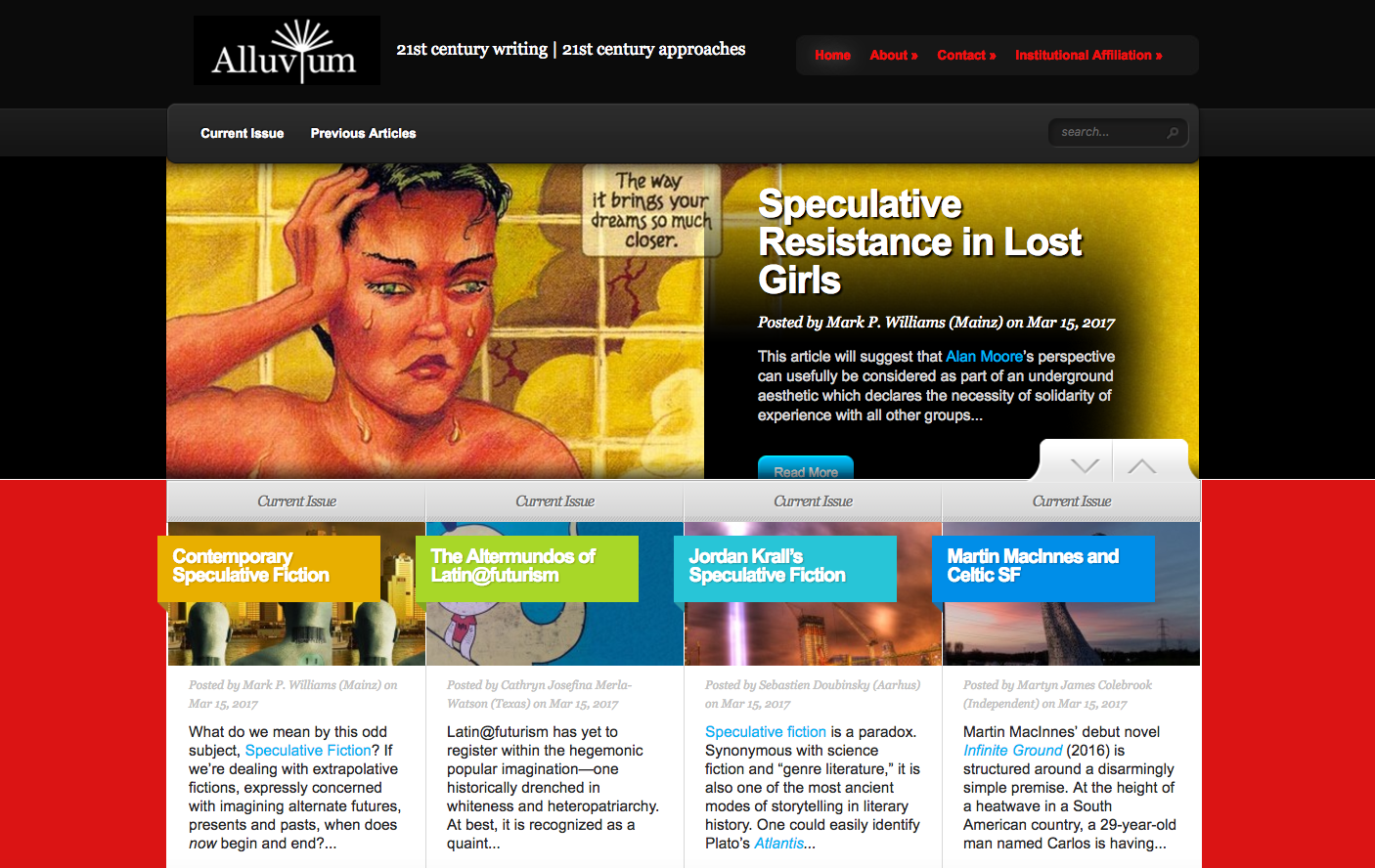
Our very own Alluvium Journal has just published Vol. 6, No. 1 – a special issue on "Contemporary Speculative Fiction," edited by Dr Mark P. Williams. The issue opens with Mark P. William's "Editorial Introduction" which considers the usefulness of speculative fiction as a generic and conceptual category for thinking about narrative's political and aesthetic work in imagining worlds that are rich in alterity. As Williams writes:
"The term Speculative Fiction is, I believe, a usefully fuzzy term for designating a whole range of possible ways of making narrative. In part it seems imprecise because it moves away somewhat from the distinctions between Science Fiction and Fantasy that defined the establishment of the study of Science Fiction, and there are times when the clarity and precision of separation are extremely useful. But I think the relative imprecision. Or rather, the flexibility, of the term can also enable a higher level grasp of what we are dealing with: fictions which, above all, negate the present conditions of social expectation and the limitations of what can be expected to make sense. Speculative Fiction, in its breadth, says that we can make sense of the stories of wildly unlike events which do not seem to bear direct relation to our present times and concerns, and that those meanings can be powerful, significant and valuable to us."
The issue then proceeds with Cathryn Merla-Watson's article “The Altermundos of Latin@futurism,” which gives a virtuoso survey of the richness of Latin@futurism. She details how the aesthetic and theoretical history of Latin@futurism draws together intersections with Science Fiction and the Gothic, while articulating its distinctness as a field and its sheer cultural breadth and diversity. Sébastien Doubinsky explores Jordan Krall’s use of 9/11 as a setting for Speculative Fiction in “Jordan Krall's Speculative Fiction.” In this article, Doubinsky links Krall’s engagement with post-9/11 America with various avant-garde and speculative pre-texts – from William Burroughs and J. G. Ballard to Zamyatin and Bulgakov – examining the ways this distinctly politicised aesthetic of representation functions. This is followed by Martyn Colebrook’s article “Martin MacInnes and Celtic SF,” which examines MacInnes’ Celtic speculative fiction. Colebrook situates MacInnes’ text in light of his precursors in both the Tartan Noir subgenre and more broadly in Scottish fiction and science fiction, particularly the work of Iain Banks, Irvine Welsh and Alasdair Gray to formulate a clear set of confluences with this distinctly Scottish tradition. Finally, the special issue concludes with Williams' own essay “Speculative Resistance in Lost Girls.” Here he considers Alan Moore and Melinda Gebbie’s Lost Girls in order to examine the intersections between that polemical text and Moore’s narrative poem celebrating gay love and homosexual culture in history, The Mirror of Love.
Featured image by Alex under a CC BY-NC license.

Recent Comments